Best books of 2020
BOOKS OF THE YEAR
Best fiction of 2020
As the first lockdown descended in March, sales of Defoe’s A Journal of the Plague Year and Camus’s La Peste soared, but there were uncanny echoes of Covid-19 to be found in this year’s novels too.
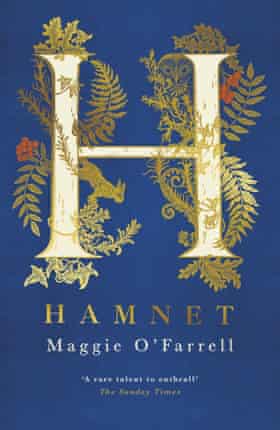
Maggie O’Farrell’s tender, heartbreaking Hamnet (Tinder), which went on to win the Women’s prize, illuminates life and love in the shadow of death four centuries ago. Focused on Anne Hathaway rather than her playwright husband , it channels the family’s grief for son Hamnet, lost to the plague, with a timeless power. From public information slogans to individual fears, Emma Donoghue’s The Pull of the Stars (Picador), set in a Dublin maternity hospital during the 1918 flu pandemic, shows how little our responses have changed. Don DeLillo completed The Silence (Picador) just before the coronavirus hit; but this slim, austere vision of what it’s like to be in a room as screens go dark and disaster unfolds outside chimes with current fears.
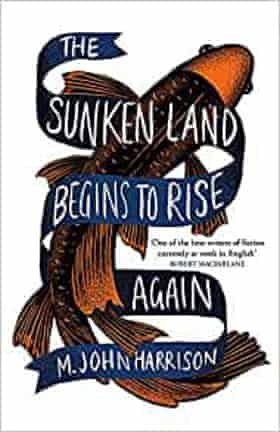
Unfolding disaster was the theme of novels that spoke explicitly to the present moment, too: Jenny Offill’s Weather (Granta) assembles shards of anecdote and aphorism into a glittering mosaic that faces up to Trump’s America and climate collapse with wit, heart and moments of sheer terror. Naomi Booth’s Exit Management (Dead Ink) expertly dramatises the crisis in housing, jobs and community. Sarah Moss’s menacing Summerwater (Picador) is set over one rainy day in a Scottish holiday park: catastrophe lurks in the near future as we dip into the minds of various daydreaming, dissatisfied holidaymakers, in a sharp investigation into the meaning of community and otherness. Also deeply attuned to the anxieties of both Brexit and our long, slow post-industrial collapse is M John Harrison’s masterly The Sunken Land Begins to Rise Again (Gollancz). An unsettling and multilayered narrative foregrounding two lost souls in a haunted, unheimlich England who don’t know how lost they are, it took the Goldsmiths prize for innovative fiction.
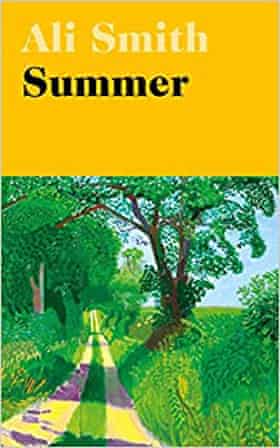
Summer (Hamish Hamilton) completed Ali Smith’s rapid-response Seasonal quartet: four novels written over four years that have encompassed Brexit, climate change, corporate takeover and the refugee crisis along with the bracing consolations of art and nature. Reuniting characters from previous volumes and juxtaposing second world war internment with today’s migrant detention centres, Summer brought a much needed note of hope and resilience to the finale of a landmark series that explores how we live in and out of time.
This year saw the final volume, too, of Hilary Mantel’s Thomas Cromwell trilogy, which has conjured a vanished age to such extraordinarily vivid life and cast profound insights about power, ambition and fate on to the present one. The Mirror & the Light (4th Estate) had to end on the executioner’s scaffold, but the reader is suspended in the unfolding present moment until the axe falls.
Another trilogy was completed in Tsitsi Dangarembga’s This Mournable Body (Faber); written three decades on from her classic Nervous Conditions, it is a brutal, intimate reckoning with the psychological trauma of colonialism. Also shortlisted for the Booker, Maaza Mengiste’s The Shadow King (Canongate) is a beautifully crafted account of the female soldiers resisting Mussolini’s invasion of Ethiopia in 1935 and their own oppression in Ethiopian society. Lyrical, furious and meticulously researched, it is a necessary act of historical reclamation.
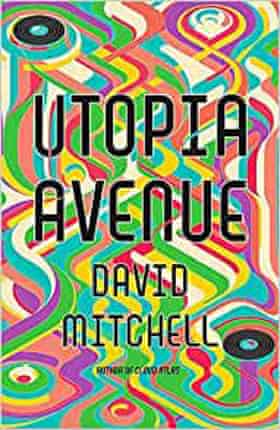
There were historical escapes from David Mitchell, in 1960s muso epic Utopia Avenue (Sceptre), and Jonathan Coe, with a bittersweet visit to one of Billy Wilder’s last film sets in Mr Wilder and Me (Viking). Curtis Sittenfeld’s Rodham (Doubleday) spun wistful alternative history, imagining what the world might have looked like if Hillary hadn’t married Bill, while Martin Amis drew on his own history for Inside Story (Cape), a baggy but fascinating autofiction combining cameos from Saul Bellow and Christopher Hitchens with tips on prose writing.
Andrew O’Hagan’s poignant Mayflies (Faber) explores the way all our lives recede too quickly into history, with a joyous nostalgiafest of young Scots chasing music and girls on a wild weekend in the 80s segueing into sober mid-life realisations and difficult decisions decades later. A brilliant portrayal of male friendship, it’s also the perfect gift for middle-aged alternative music fans.
The year began with an impressively assured debut from US author Kiley Reid; Such a Fun Age (Bloomsbury) is a razor-sharp take on white fragility and millennial uncertainty, beginning when a black nanny is accused of kidnapping her white charge. Also witty and fresh, Naoise Dolan’s deliciously dry Exciting Times (W&N) sees cynical Irish twentysomething Ava unsettled by genuine emotion while teaching in Hong Kong.
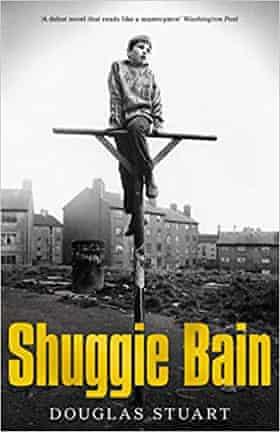
Two semi-autobiographical Scottish debuts from Picador showcased essential new voices: Douglas Stuart took the Booker prize for his moving, devastating Shuggie Bain, the tale of a boy’s desperate love for his alcoholic mother in the deprived, post-industrial 80s; while Graeme Armstrong’s The Young Team, set among teenage gangs in Lanarkshire, updated Trainspotting for a new generation.
Other notable first novels included Rainbow Milk by Paul Mendez (Dialogue), a fearless coming-of-age story about racial and sexual identity and masculinity focused on a young, black gay man who flees his Jehovah’s Witness community to become a sex worker. Burnt Sugar by Avni Doshi (Hamish Hamilton) coolly explores a toxic mother-daughter relationship in middle-class India, while Brandon Taylor’s Real Life (Daunt) weighs contradictory urges towards solitude and intimacy. The Liar’s Dictionary by Eley Williams (William Heinemann), which continues the lexicographical playfulness of her short stories, is a singularly charming jeu d’esprit about two people a century apart doing the difficult, essential work of defining words and defining themselves.
In translated fiction, Elena Ferrante returned to her emotional heartland, the psyche of the teenage girl, in (Europa, translated by Ann Goldstein). As Giovanna tackles parental hypocrisy, self-disgust and the disconnect between upper- and lower-class Naples, the novel builds into what feels like a portrait of the artist as a young woman. Originally conceived as a true crime story, Hurricane Season by Fernanda Melchor (Fitzcarraldo, translated by Sophie Hughes) is a savage, unstoppable chronicle of misogyny and murder in a small Mexican village. Another rawly compelling novel won the International Booker: young Dutch writer Marieke Lucas Rijneveld’s The Discomfort of Evening (Faber, translated by Michele Hutchison) focuses on a girl in a deeply religious family that is falling apart in the wake of her brother’s death.
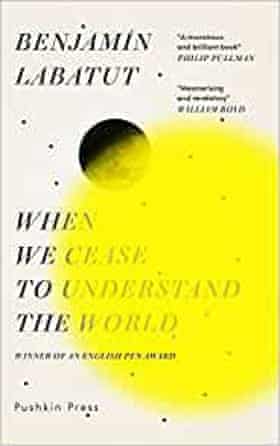
Daniel Kehlmann’s darkly funny Tyll (Riverrun, translated by Ross Benjamin), a picaresque journey through early 17th-century Europe, follows the progress of a folkloric jester figure from village to court against the bloody backdrop of the thirty years’ war. In Samanta Schweblin’s fiendishly readable Little Eyes (Oneworld, translated by Megan McDowell), the new must-have tech gadget allows users to leapfrog into the lives of strangers – a sharp idea that became even more pertinent with the isolation and atomisation of lockdown. When We Cease to Understand the World by Benjamín Labatut (Pushkin, translated by Adrian Nathan West), a “nonfiction novel” focused on the exceptional minds looking into the dark heart of maths and science in the 20th century, traces revelatory connections between discovery and destruction.
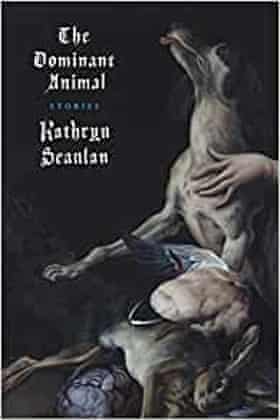
Some of the most exciting short stories of the year were to be found in Kathryn Scanlan’s The Dominant Animal (Daunt), with its fiercely sculpted sentences and unnervingly off-kilter scenarios. Cathy Sweeney’s Modern Times (W&N) has a comically surreal energy and verve, while in Reality and Other Stories (Faber) John Lanchester structures a collection of ghost stories around the most dangerous, intrusive, unknowable force in our lives – technology.
Two striking books unfolded in the fertile space between story collection and novel. In poet Frances Leviston’s The Voice in My Ear (Cape), 10 different protagonists, all called Claire, contend with the demands of the world and their difficult mothers; the stories glance off each other to build into a cubist portrait of contemporary womanhood. Maria Reva’s Good Citizens Need Not Fear (Virago), meanwhile, uses interlinked tales centred around a crumbling apartment block in Ukraine to convey the absurdity of post-Soviet life.
Finally, two novels that were a long time coming. From the 18th century to the 21st, Evie Wyld’s The Bass Rock (Cape) explores violence against women in three subtly linked time periods: a blazingly angry, darkly witty tour de force, Wyld’s third novel is bleak but bracing, and as ever, beautifully written.
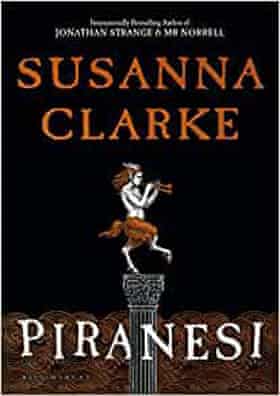
Sixteen years after her bestselling debut Jonathan Strange and Mr Norrell, Susanna Clarke returned with Piranesi (Bloomsbury), the story of a man trapped in a many-halled House with an Ocean surging within it, his only companion a mysterious Other. Written out of long illness, but published into a world in which every reader was struggling with confinement and thrown on their inner resources, Clarke’s fantastical parable of solitude, imagination, ambition and contentment is a spectacular piece of fiction, and the perfect reading accompaniment to a year like no other.







No comments:
Post a Comment